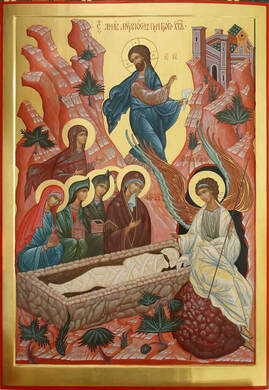 I couldn’t believe what I was seeing; I was just popping out to the recycle bin when I saw the Hearse. John (not his real name!) was dead! It appears that he fell asleep at the end of March but, because of the Coronavirus (Covid-19) situation, there had been difficulties arranging his funeral and letting others know. The only funeral car available was for Johns coffin. His widow and young son travelled with friends in a private car. Again, due to current restrictions, very few mourners where able to attend. One cannot avoid hearing and reading stories of those being taken to hospital with the coronavirus who die alone or supported only by a PPE clad nurse. Their families never getting the opportunity to say goodbye. Not able to grieve properly. We grieve because we loved. After the terrorist attacks on the twin towers, her majesty the Queen said, “grief is the price we pay for love”. Because loss is an inevitable aspect of all human relationships, so too is grief. We grieve naturally, just like we breathe air naturally. It affects all aspects of our existence. Rituals that address loss have for a long time been built into the religions and cultures of the world. Whether a wailing wall, windows covered in black, ripped clothing, or overt crying, the need to grieve (to feel) and mourn (to do) is a recognized and encouraged phenomenon. The Bible says “there is a time to weep…..a time to mourn” (Ecc.Ch 3). In our Gospel reading for today, Mark 15: 43-16: 8, we meet grief. There is the grief of Joseph of Arimathea and that of the Holy myrrh-bearing women. These women watched as Joseph took Christ’s body down from the cross. They followed Jesus through his passion, witnessing that he was tried and crucified. They watched as Joseph of Arimathea stepped up and gave Jesus a proper burial in his own tomb. They have seen the stone sealing the tomb. These women loved Jesus, and now they grieve for the loss of their beloved leader. All hope is lost. He is gone. And yet even in the face of hopelessness, these women act. They buy ointments that will help his body dry out as it decays, and sweet spices so that even in death, his body is honoured. Their actions show their steadfast love for Christ, that even after hope is shattered, they go the extra mile to honour Jesus. Such is their love for this dead man. In their actions, we see that the myrrh-bearers come to anoint Christ not out of a desire for any recognition or reward from Jesus, rather they are motivated by their love for Him, and the need to grieve properly. The disciples, I am sure were also grieving. Things had not turned out the way they had expected. John was the only disciple to stand at the foot the cross, the others had run away in fear and Peter had denied Jesus three times. They were disappointed and they were shocked. They believed that death had been the final word. They too were grieving. However, there is a very different response to the grief experienced by the myrrh-bearing women and that of the disciples. The myrrh-bearers resisted the temptation to think only about themselves and their loss; rather they kept their focus on serving Jesus as best they could. For them, that meant doing the sorrowful task of giving their departed Lord and friend a decent burial They found the courage and strength not to focus on themselves, but on showing love to Christ as best they could. If we too love and serve Christ even in the midst of our most difficult struggles in life, then we also will be healed whether of our prideful selfishness or our grief. We will become more fully who our Lord wants us to be through His glorious resurrection. Christ is Risen! By the intercessions of the Holy Myrrh-Bearers, O God, have mercy on us and save us. Amen Fr Julian
0 Comments
Leave a Reply. |
Parish Blog
This mainly contains homilies and messages from our priests, although there is some scope to share thoughts and interesting articles which we may want to share with others Archives
October 2022
Categories |
 RSS Feed
RSS Feed